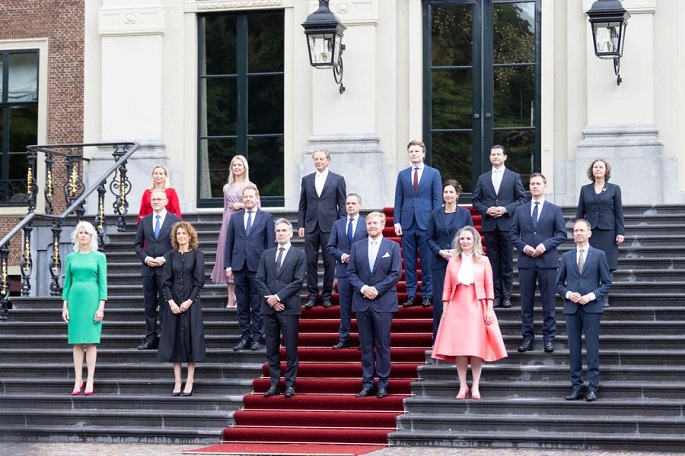New Dutch gov't sworn in 220 days after elections
Published : 03 Jul 2024, 05:23
The new Dutch government was officially sworn in on Tuesday at the Huis ten Bosch Palace in The Hague, more than 220 days after the general elections in November last year, reported Xinhua.
Following the honorable discharge of the former government, 16 new ministers were sworn in, followed by 13 state secretaries.
The new government was formed after intense negotiations among the four coalition parties: the Party for Freedom (PVV), the New Social Contract (NSC), the People's Party for Freedom and Democracy (VVD), and the Farmer-Citizen Movement (BBB). The coalition leaders, including PVV leader Geert Wilders, agreed that none of them would become the prime minister.
Dick Schoof, a top Dutch civil servant and supported by all the coalition parties, was named in May as the new prime minister despite not being a member of any political party. Schoof had previously held various positions as a civil servant.
One of the primary tasks for the 67-year-old Schoof and his government is to shape public policy based on the coalition agreement.
As outlined in the agreement, the new government aims for "the strictest asylum admission regime and the most comprehensive migration control package ever."
This includes a temporary asylum crisis act, allowing for far-reaching measures such as an "asylum decision freeze" during crises.
The coalition parties have expressed their intention to "stem the excessive influx of asylum seekers and immigrants" and will seek permission from the European Commission to opt out of European asylum and migration policies.
Beyond immigration, the new Dutch government will focus on improving social security and household purchasing power, promoting housing construction and energy transformation, advancing agricultural development to ensure food security, and strengthening national security and international cooperation.
"Whether it concerns social security, health care, or money in our pockets, or the availability of sufficient housing, our ambition is great," the coalition parties stated in their agreement.


